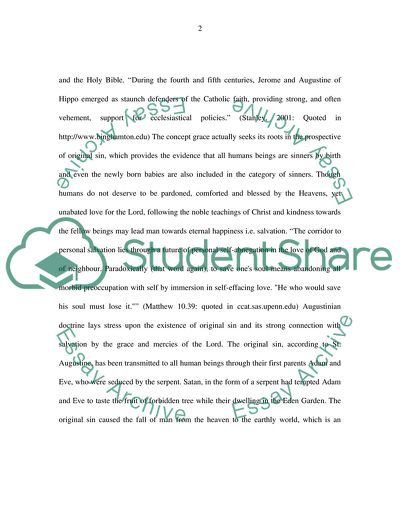Cite this document
(St. Augustine's Theology of Grace Assignment Example | Topics and Well Written Essays - 3500 words, n.d.)
St. Augustine's Theology of Grace Assignment Example | Topics and Well Written Essays - 3500 words. Retrieved from https://studentshare.org/religion-and-theology/1719940-outline-and-discuss-augustines-theology-of-grace
St. Augustine's Theology of Grace Assignment Example | Topics and Well Written Essays - 3500 words. Retrieved from https://studentshare.org/religion-and-theology/1719940-outline-and-discuss-augustines-theology-of-grace
(St. Augustine'S Theology of Grace Assignment Example | Topics and Well Written Essays - 3500 Words)
St. Augustine'S Theology of Grace Assignment Example | Topics and Well Written Essays - 3500 Words. https://studentshare.org/religion-and-theology/1719940-outline-and-discuss-augustines-theology-of-grace.
St. Augustine'S Theology of Grace Assignment Example | Topics and Well Written Essays - 3500 Words. https://studentshare.org/religion-and-theology/1719940-outline-and-discuss-augustines-theology-of-grace.
“St. Augustine'S Theology of Grace Assignment Example | Topics and Well Written Essays - 3500 Words”, n.d. https://studentshare.org/religion-and-theology/1719940-outline-and-discuss-augustines-theology-of-grace.


